Taiwan is only months away from shutting off all nuclear power, but some question whether the tech powerhouse is ready
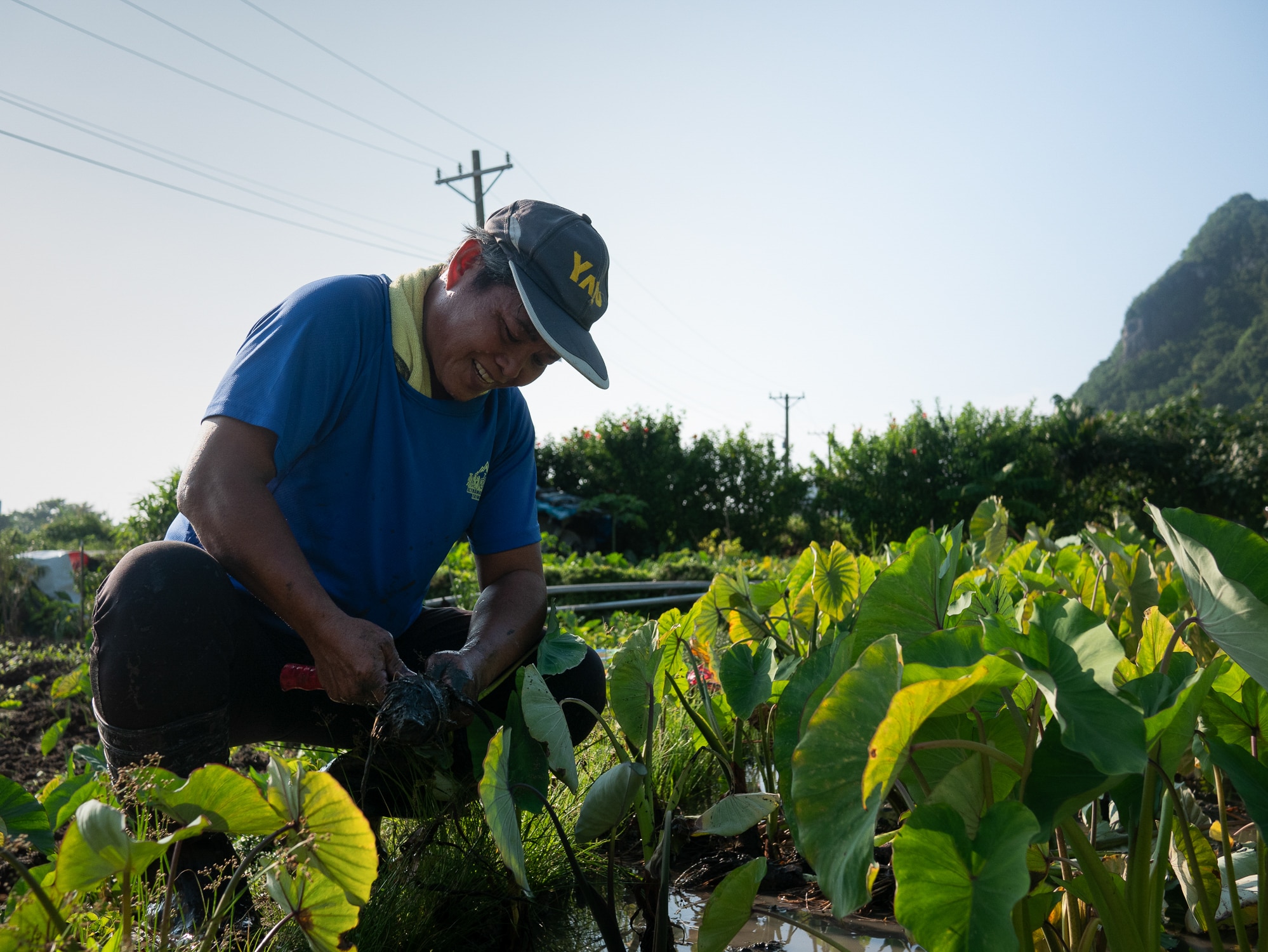
Syamen Womzas harvests taro on Lanyu, an island in Taiwan's far south-west.
As Syamen Womzas harvests taro in a water-logged field on Lanyu, pebbles of sweat trace the lines on his face.
The early autumn sun still beats hard on the island and, about as far south-west as you can go and still be in Taiwan, the humidity is oppressive.
"This is the field I inherited from my parents," he says.
"These fields have been here for generations."
The tiny island he calls home is at the heart of Taiwan's nuclear power debate.
For decades, Lanyu has been saddled with a nuclear waste facility, which Syamen Womzas and others have protested over and campaigned to have removed, fearing environmental impacts.
He wants to see Taiwan completely free of nuclear power.
That transition is happening, but as Taiwan works to phase out its nuclear plants, questions are being asked about how it will continue to power itself.
This lack of energy security adds another complexity to life in Taiwan as its people live with the looming threat of China.
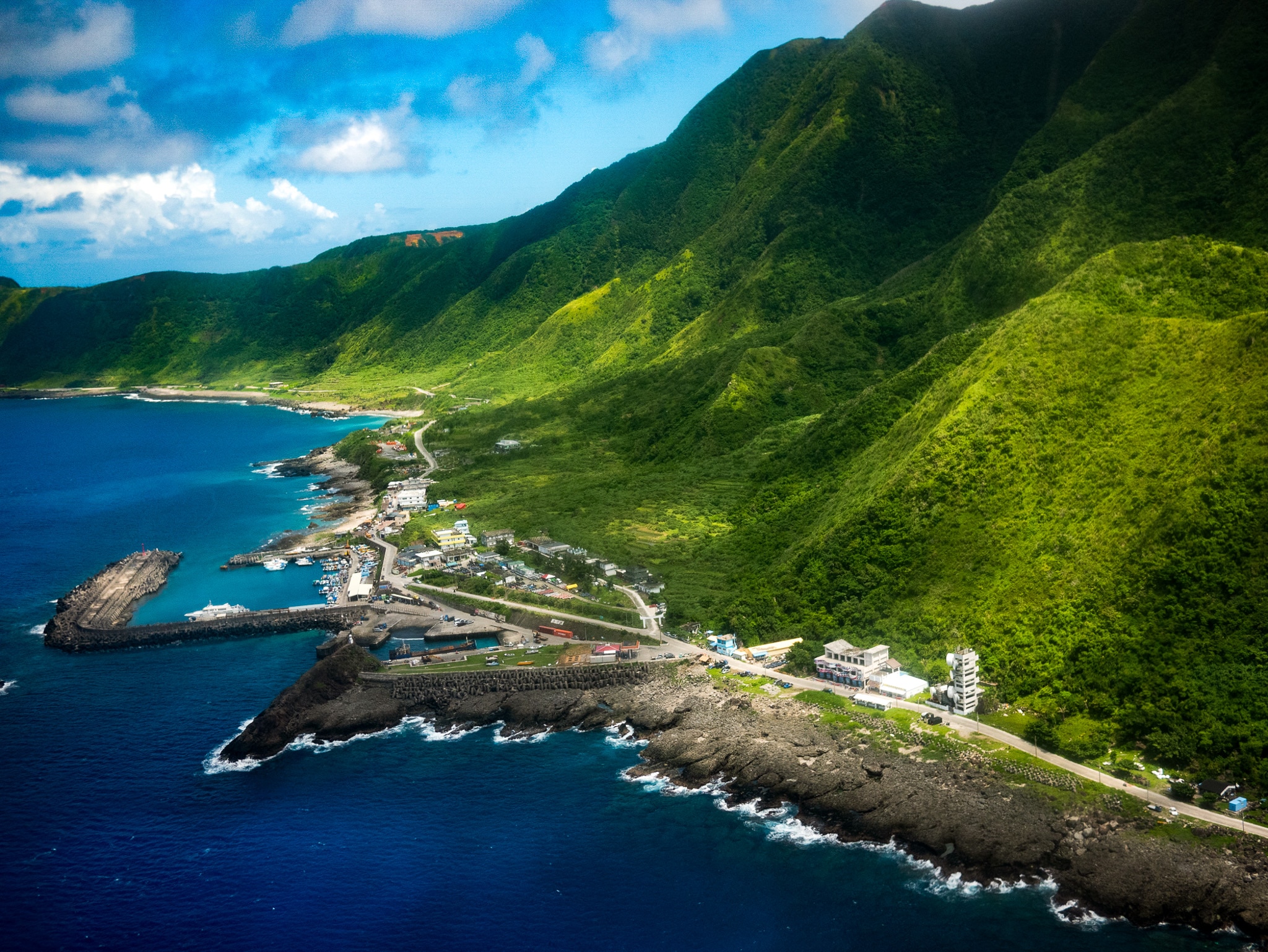
Lanyu has been fighting about nuclear waste for decades.
Nuclear power and democracy in Taiwan
Syamen Womzas is a member of the Taiwanese aboriginal Tao people, who have lived on Lanyu for thousands of years.
Fringed by emerald cliffs and other-worldly rock formations, today the island is a haven for divers and tourists wanting to explore its stunning coral reefs and enjoy its laid-back lifestyle.
But the nuclear waste facility is one enduring scar on the otherwise pristine island.
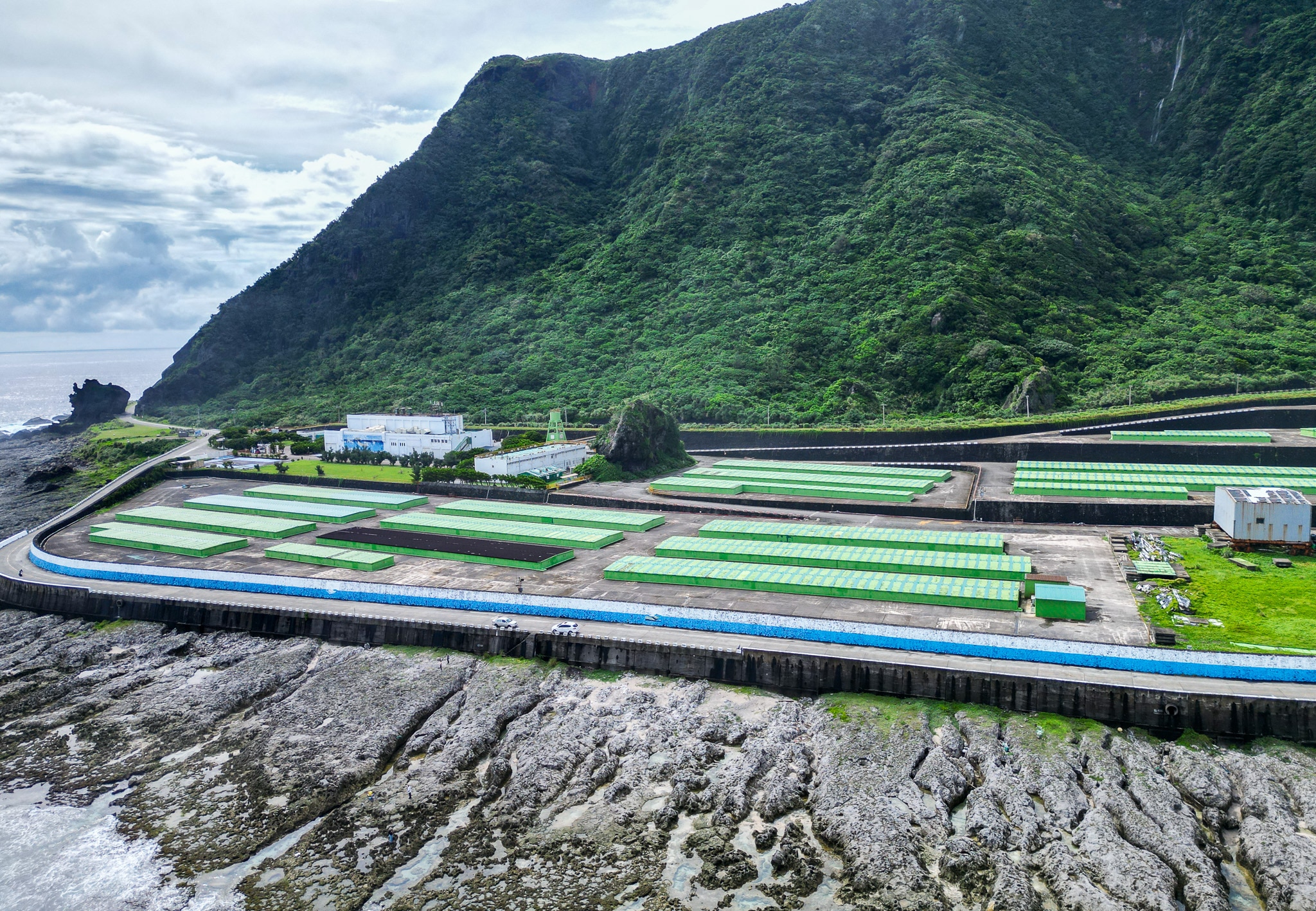
A site with containers storing low-level nuclear waste on Lanyu in Taiwan
"When the nuclear waste entered Lanyu, we people in Lanyu were completely uninformed," Syamen Womzas tells the students at the Lanyu Elementary School, where he is the principal.
"They said they were building a military harbour and a canning factory.
"No one knew that the so-called cans would turn out to be barrels of nuclear waste.
"For almost 40 years we've kept asking the government to remove the storage site, but the officials keep delaying."
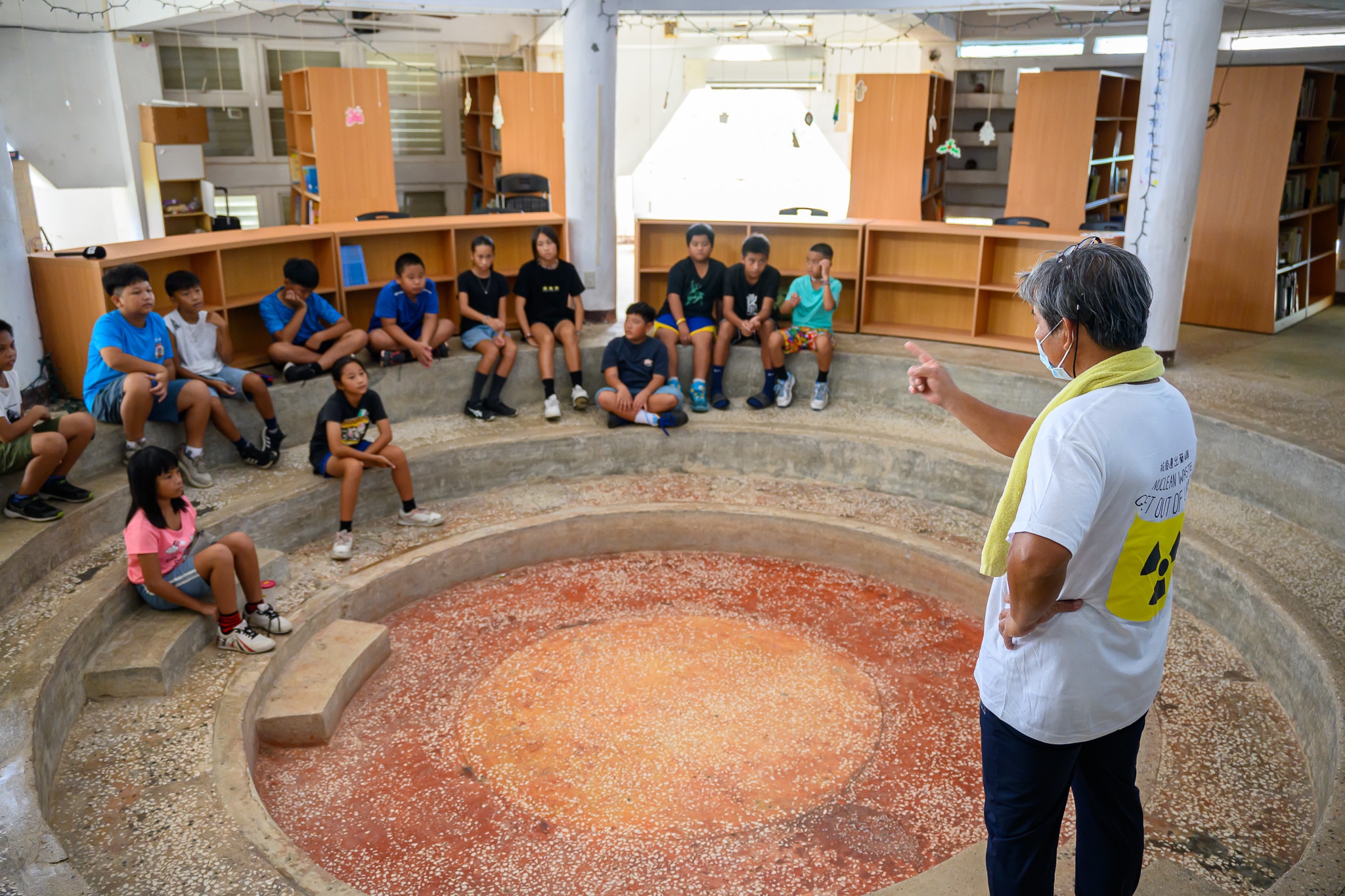
Syamen Womzas tells students at the elementary school about the history of nuclear waste on Lanyu.
In the 1970s and 80s, when Taiwan was still under martial law and the authoritarian rule of the exiled Kuomintang government, three nuclear power plants were built.
But as Taiwan moved towards democratisation and the Chernobyl disaster occurred in Ukraine, an anti-nuclear movement began to emerge.
"The ruling Democratic Progressive Party really came together only in 1986 — the year of Chernobyl," says clean energy advocate Angelica Oung, founder of the Clean Energy Transition Alliance.
"The fact that that was such big news back then caused people to draw an equal sign between authoritarianism, contamination and nuclear energy as a symbol of the lack of democracy that Taiwan was under.
"They made it a goal to get rid of nuclear energy in Taiwan, and so the fight against nuclear energy and the fight for democracy in Taiwan have become entwined."
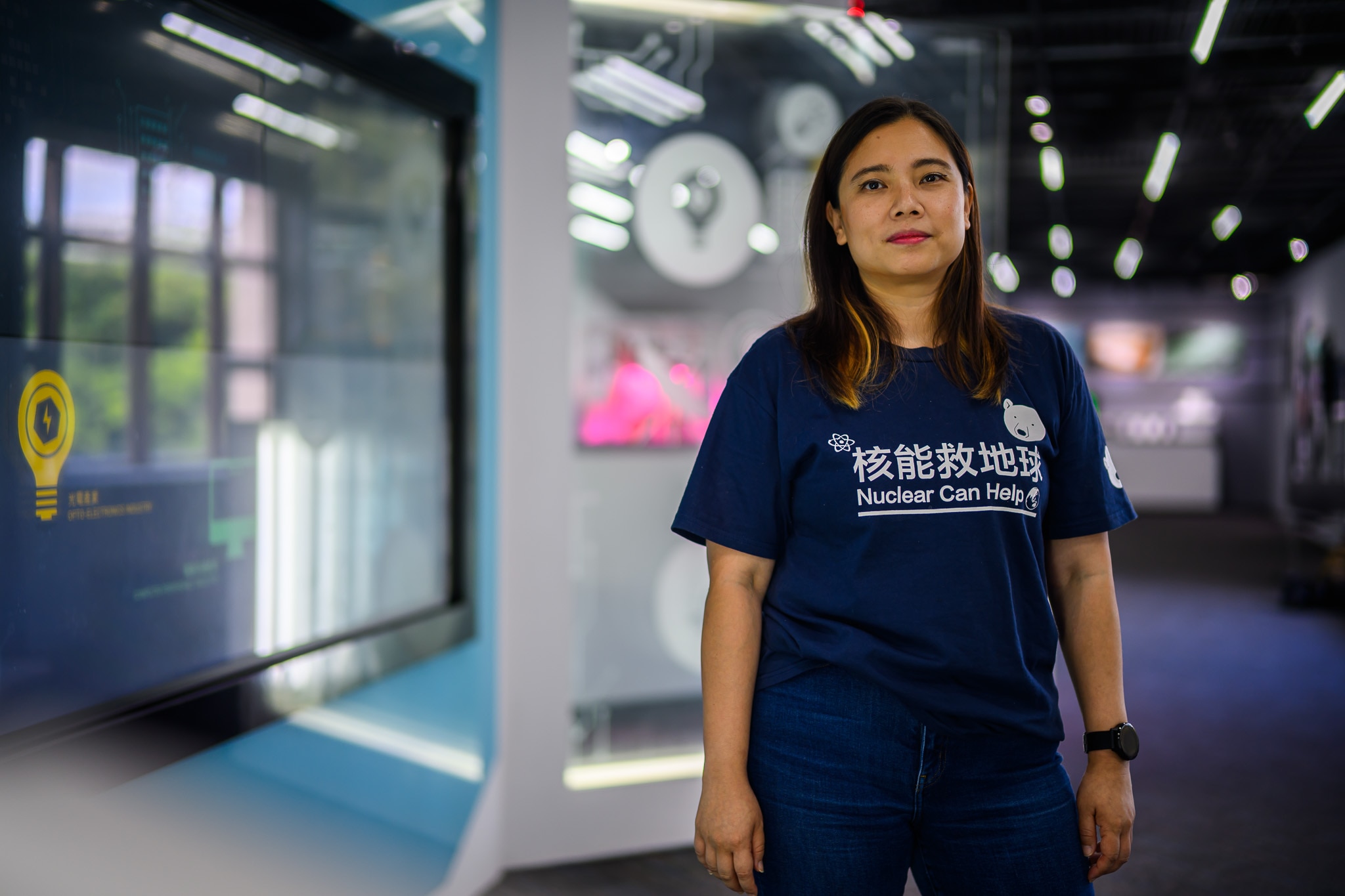
Angelica Oung says Taiwan needs nuclear as a clean energy source.
Fear of disaster puts nuclear out
In 2011, after the Fukushima disaster in Japan, the nuclear debate really entered the mainstream.
It stirred fear in the community that a similar accident could happen in Taiwan where, like Japan, it's prone to frequent earthquakes.
In the years following, the Democratic Progressive Party installed a nuclear-free homeland policy under which it committed not to renew the licences of the three existing plants.
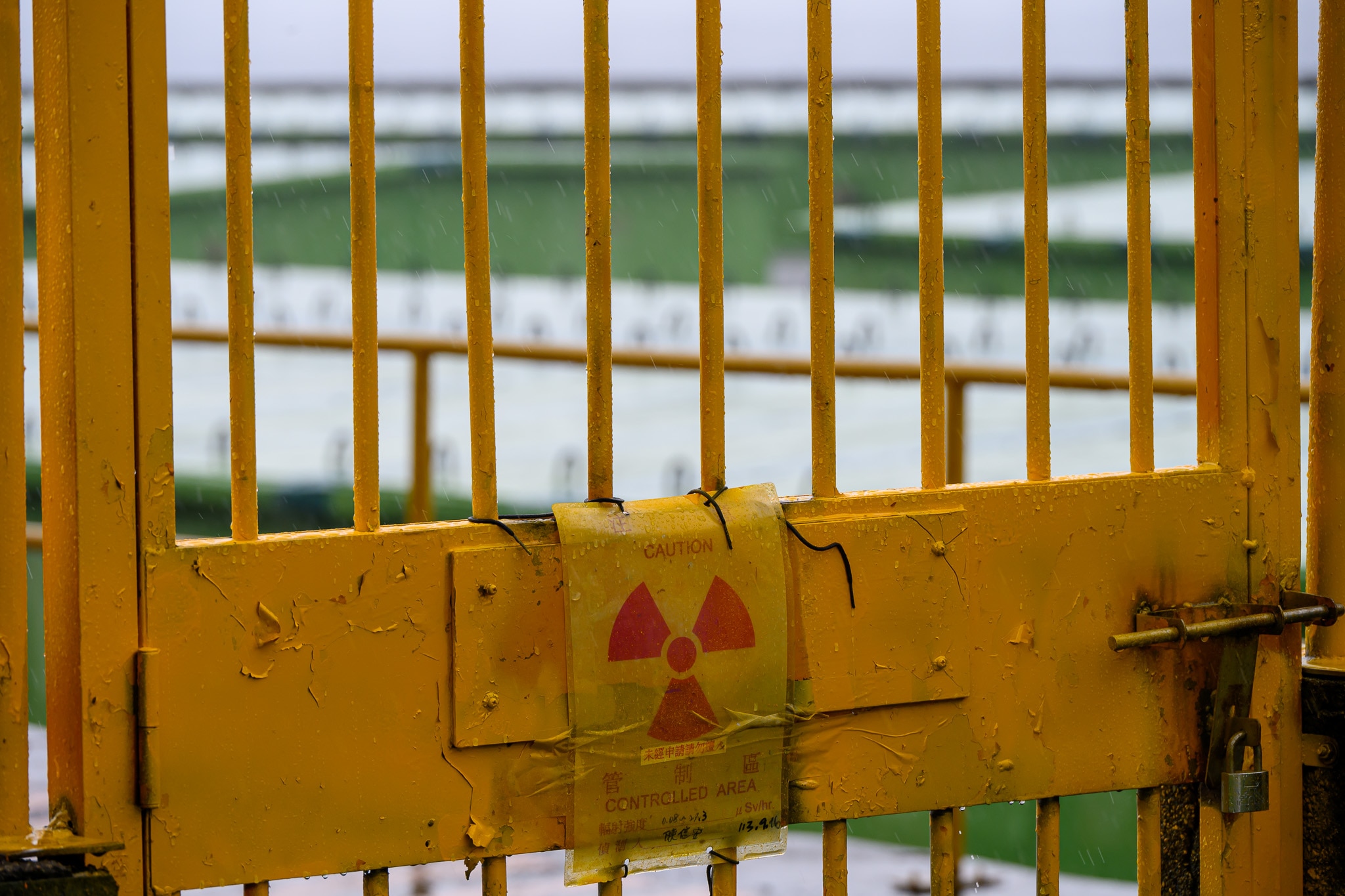
The entrance to a nuclear waste facility on Lanyu island in Taiwan.
Meanwhile, the construction of a fourth plant had been beset by problems and delays over a 15-year period.
Then in 2021, a referendum was held that saw the Taiwanese public vote against finally firing it up.
It's an issue of public perception rather than capability, according to Tsaiying Lu from the Research Institute for Democracy, Society and Emerging Technology, a government think tank.
"Building a nuclear power plant, it will need not only the technical engineering task, we also need social communication," she says.
"And that really matters — you see from Taiwan's case that if you cannot really generate the social consensus on (a nuclear plant), then even if it is built, you still cannot use it."
There's a lesson in that for Australia too, Dr Lu argues, as the country investigates its own options for nuclear power.
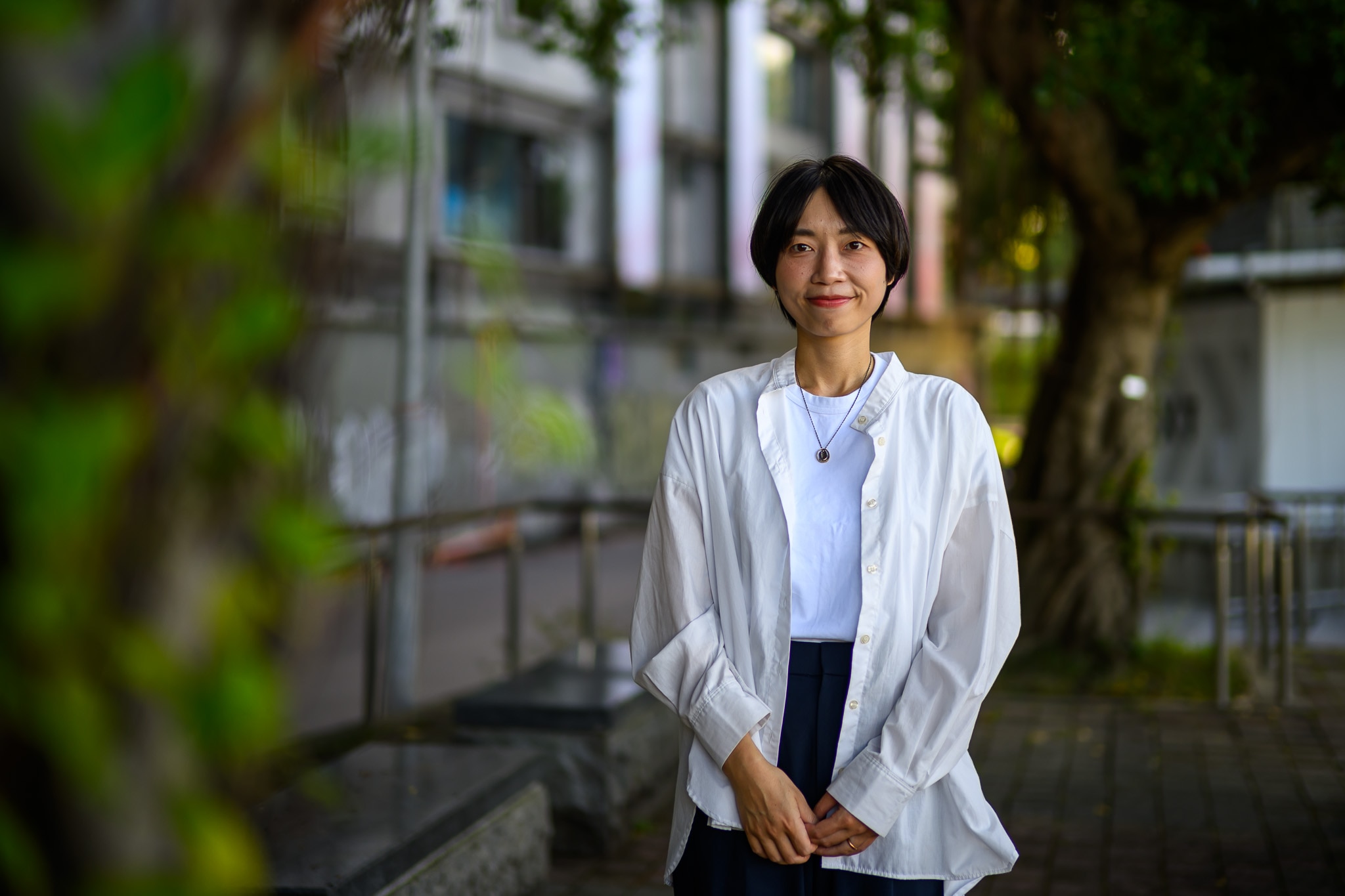
Tsaiying Lu says without social consensus on nuclear power, it won't be used.
Taiwan's government now seems to be hedging on its no-nuclear policy and testing the water on how the public might react to the possibility of extending the licence of the nuclear plants.
In a recent interview, Taiwan's Premier Cho Jung-tai expressed an openness to new nuclear power technology.
The Minister of Economic Affairs, Guo Zhihui, has also floated the possibility of extending the operating licences of two of the island's nuclear plants "if legal obstacles can be resolved and the safety … can be ensured".
This is in line with recent polling by the Taiwan Institute for Sustainable Energy, which shows the Taiwanese public opinion about nuclear power is changing — 57.5 per cent support it as a way to deliver on Taiwan's net zero goals, while only 22.3 per cent don't.
So far, however, two power plants have been shut down, with the final one due to be completely decommissioned by May next year.
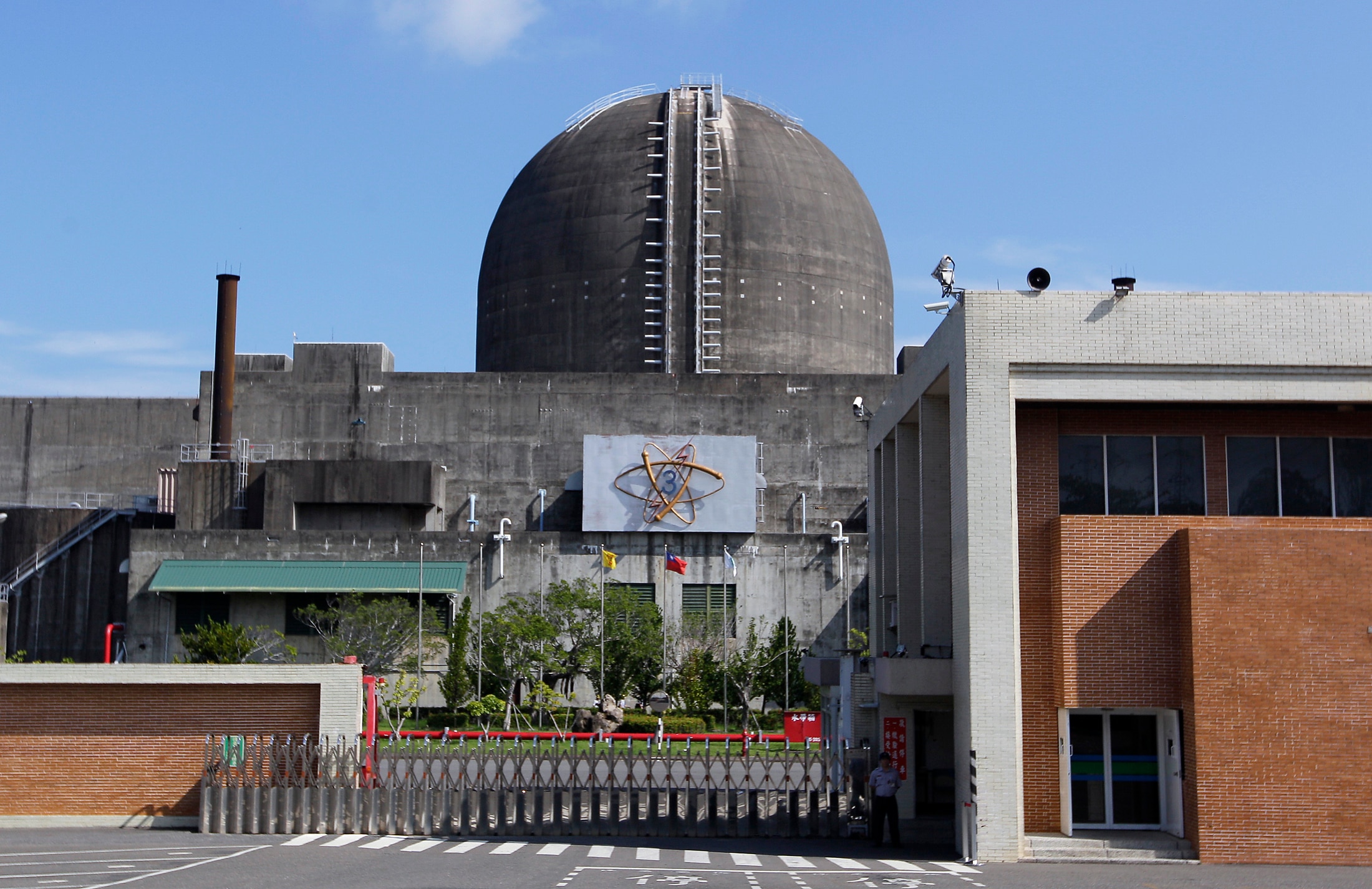
Taiwan's third nuclear power plant faces closure.
That has led critics to question whether there is enough replacement power sources to be able to keep up with current demand.
"From 2020 we've had three Island-wide multi-hour rolling blackouts," says Angelica Oung.
Construction of offshore wind is stalling because of delays, high costs due to a local component requirement and the geopolitical risks of investing in Taiwan, while there is limited land space for solar.
"Taiwan mainly relies on coal and also gas, which make up 78 per cent of total electricity generation, and then renewable energy, mostly solar, claimed 9 per cent last year," Dr Lu says.
"The total installed capacity of renewable energy should reach at least 20 to 30 per cent by 2030.
"I think Taiwan needs to do more work on how to push more renewable energy and to make them integrated into the grid."
Nuclear 'could make or break Taiwan's future'
While Taiwan develops its energy alternatives, those in favour of nuclear argue it's the one source that could be relied upon in an emergency for any real length of time.
Taiwan imports 97 per cent of its energy sources from overseas, including uranium, coal and liquefied natural gas (LNG), the biggest supplier of which is Australia.
So in the event China blockades or invades, Taiwan's electricity would likely come under pressure very quickly.
"I think the biggest risk relates to LNG, which is about 40 per cent of our mix right now (and) we're trying to get it up to 50 per cent," Ms Oung says.
"It's hot in the summer right now, we can hold about an eight-day supply, in the winter, maybe two weeks — this creates a major vulnerability, because this is going to be very easy for China to disrupt with a blockade, or even short of a blockade.
"Even if we turn on all our legacy (nuclear) reactors, is still going to be relatively low (proportion of Taiwan's energy), but all that fuel is stored on site routinely, 18 months worth of fuel … that little bit of power you can rely on not to run out could make or break Taiwan's future."
A war over Taiwan would also have serious ramifications for the entire globe.
The city of Hsinchu — which is at almost the direct opposite end of Taiwan to Lanyu — is the centre of Taiwan's high tech economy, most importantly the semiconductor industry
The tiny silicon wafers are in everything from smartphones to military technology and Taiwan produces more than 90 per cent of the world's most advanced chips.
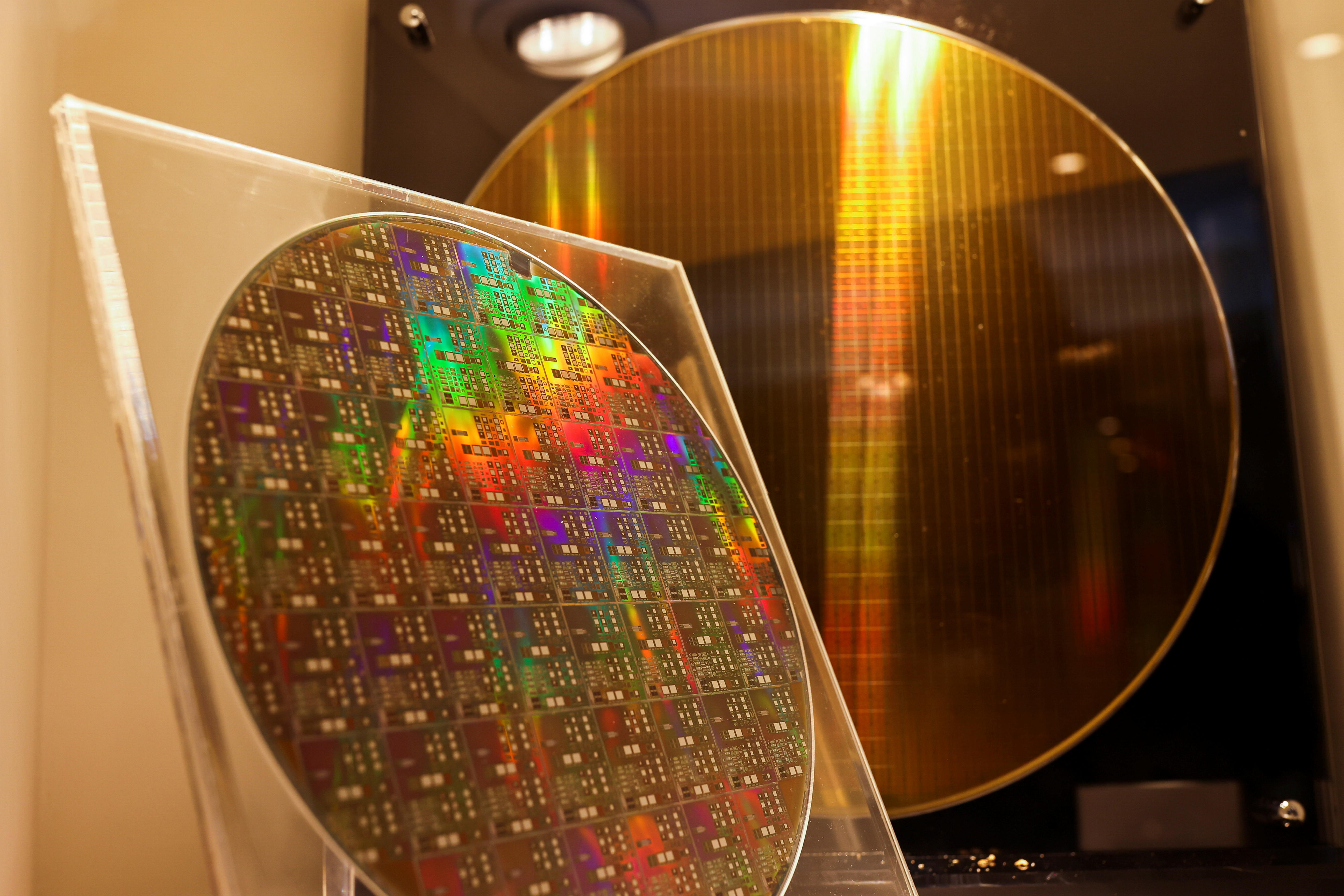
Two wafer chips on display at the Taiwan Semiconductor Research Institute in Hsinchu.
The Taiwan Semiconductor Manufacturing Company (TSMC), arguably the world's most important chip firm, is headquartered in Hsinchu.
"The semiconductor industry is an absolute monster when it comes to consuming electricity," Ms Oung says.
"TSMC, in 2021, used 6.4 per cent of Taiwan's grid — that's the most recent year we have firm numbers for, but you can bet it's already a lot higher than that, because every time those chips make an advance in their speed, they become much, much more energy intensive to make.
"Bloomberg predicts that by 2025, which is just around the corner, the power use of TSMC in Taiwan could be as much as 12.5 per cent of the grid."
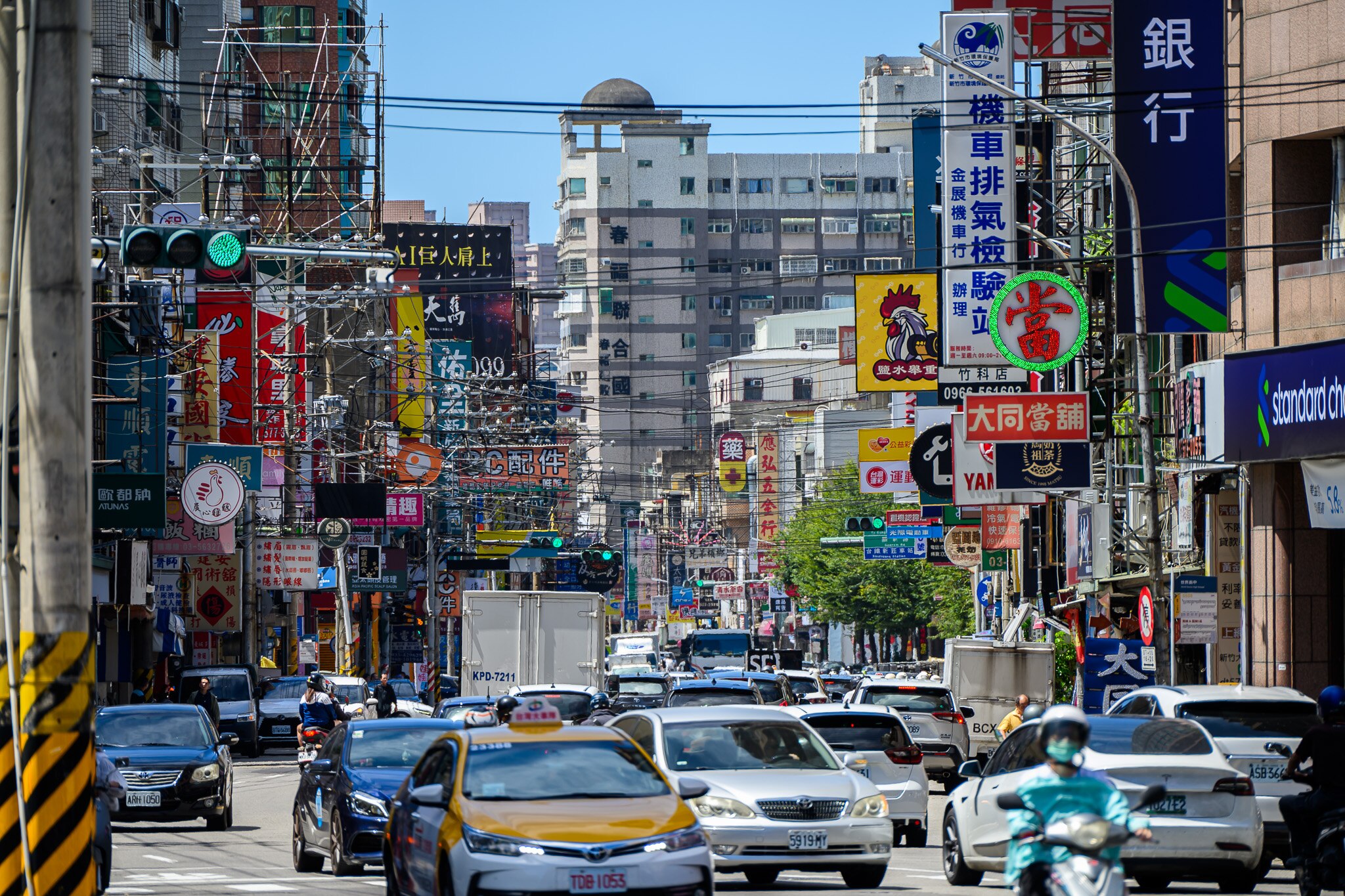
Hsinchu is the centre of Taiwan's semi-conductor industry.
Differing views on the future
Meanwhile, Taiwan's electricity company Taipower is still deciding on what to do with the rest of Taiwan's nuclear waste.
It says it will decide on a permanent storage location by 2038. If a new site is approved, Taipower says it will also relocate the waste from Lanyu there.
Without a permanent storage plan for the waste, which is accepted by the public, Dr Lu suggests nuclear power won't be a viable option in the future.
"The costs of dry storage facilities for high-level nuclear waste (spent fuel), the treatment of low- and intermediate-level nuclear waste, and the construction and operation of final storage facilities all need to be considered," she says.
The nuclear waste stored on Lanyu is low level and around 100,000 barrels were deposited there.
Nothing has been added to the storage since 1996 and the site is open to the public.
When the ABC visited, the manager was keen to emphasise that the site was open, to show that there is nothing to be afraid of.
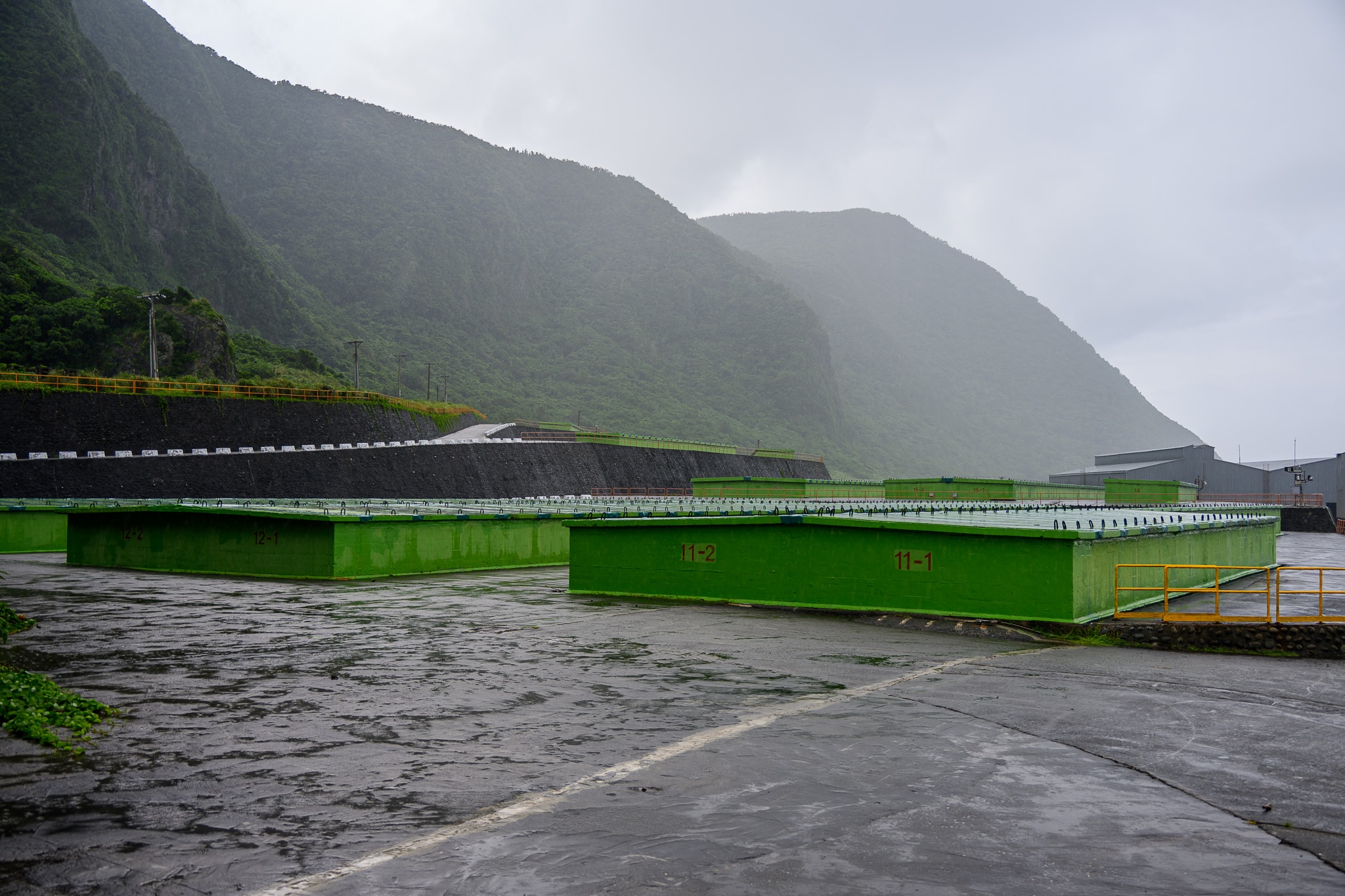
About 100,000 barrels of nuclear waste are kept on Lanyu Island.
But recently, the government found that Taipower has failed to properly monitor and manage the waste.
The report was initiated in response to a complaint filed by the family of a man who was diagnosed with leukaemia three years after working at the storage site.
It found that "workers performing inspection and re-packaging work back then were likely exposed to quite high doses of radiation."
"Over the past 30 to 40 years, managing and storing each of these 100,000-plus barrels has cost at least $NT1 million ($47,000) per barrel, with expenses expected to continue indefinitely."
In a statement, Taipower said: "Radiation detection and analysis of environmental samples over the years show that the surrounding environment of the Lanyu storage site remains within safe limits, meeting all relevant nuclear regulations and far below legal thresholds, without any negative impact on the environment."
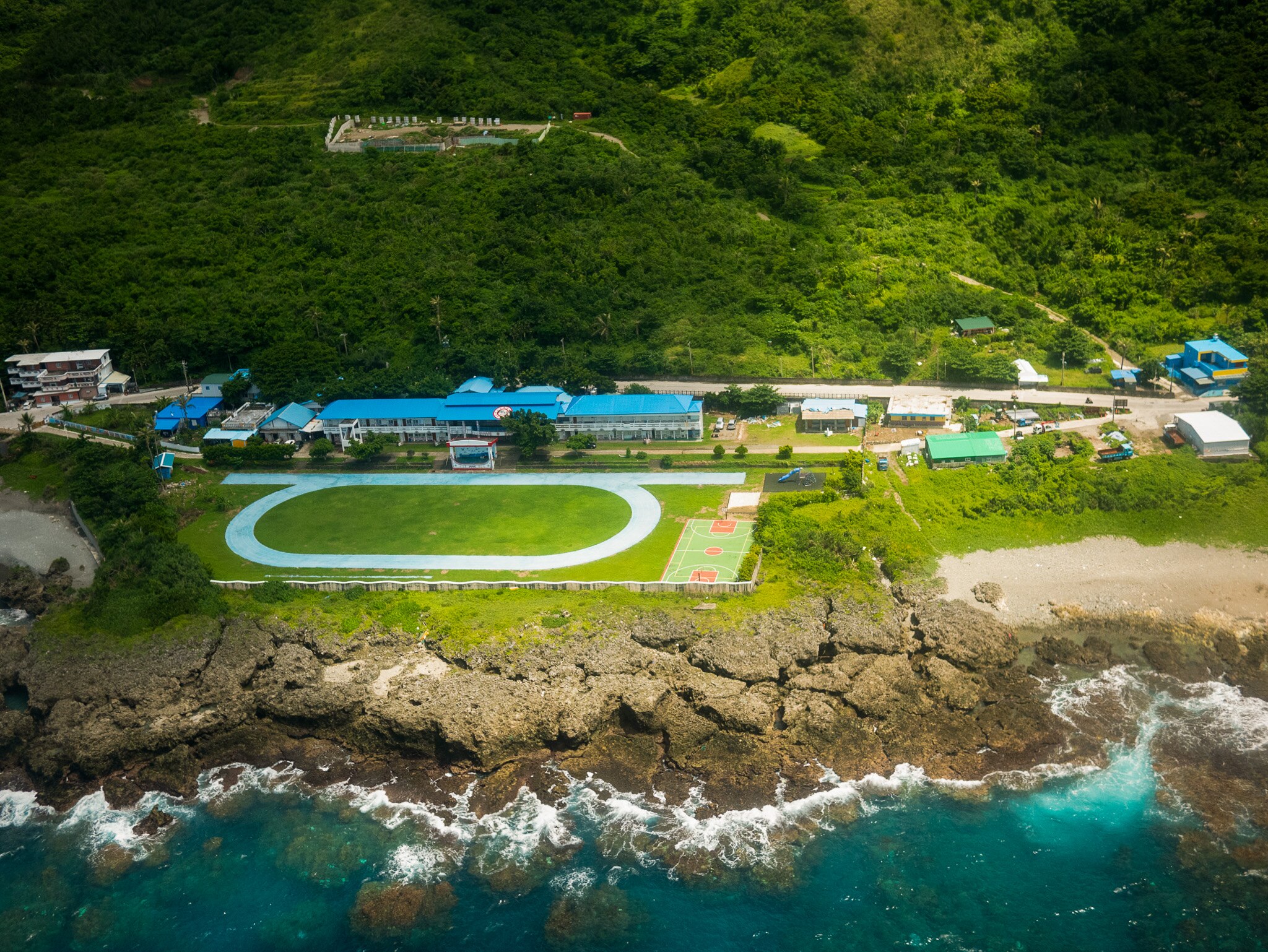
Advocates against the nuclear waste facility worry about environmental effects.
Despite this, some on the island are pragmatic about its presence.
"[Energy] transition is a must but we can't rush suspending the third nuclear power plant," said a man who agreed to talk to the ABC as long as it did not publish his name.
The issue is controversial on the island, he says; there can be disagreements even among friends and he worries people won't recommend his business to visiting tourists.
"If you want to stay competitive on the international stage and attract more foreign investments into Taiwan, the issue of electricity (supply) must be resolved," he says.
"I don't think it's necessary (to remove the waste) because how long has the nuclear waste been here … and now you want to send it somewhere else?
"Wouldn't the subsidies go to the place where the new site is built? As long as there is no more nuclear waste coming onto [the island], it's fine."
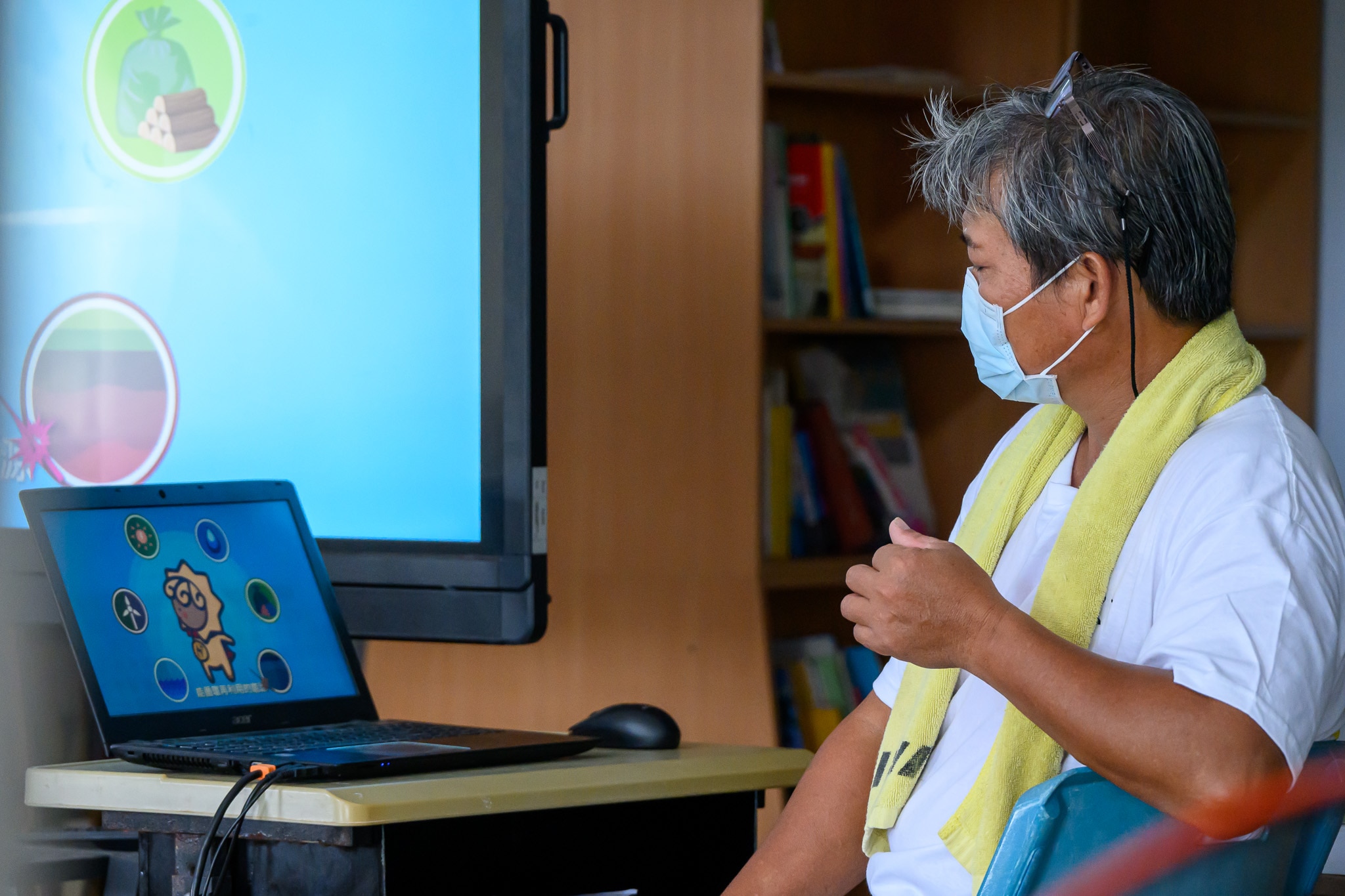
Syamen Womzas teaches his students about nuclear power and waste.
But Syamen Womzas, the school principal, still worries about how it will impact the environment.
"If the nuclear waste stays in Lanyu, it will continue to impact the environment," he says.
"It will also impact the roots of the plants, and the habits of the animals.
"I think we are constantly thinking (about) progress and development, so we need more electricity — if everyone can think about more rational use of energy, I think it will be better for the earth."
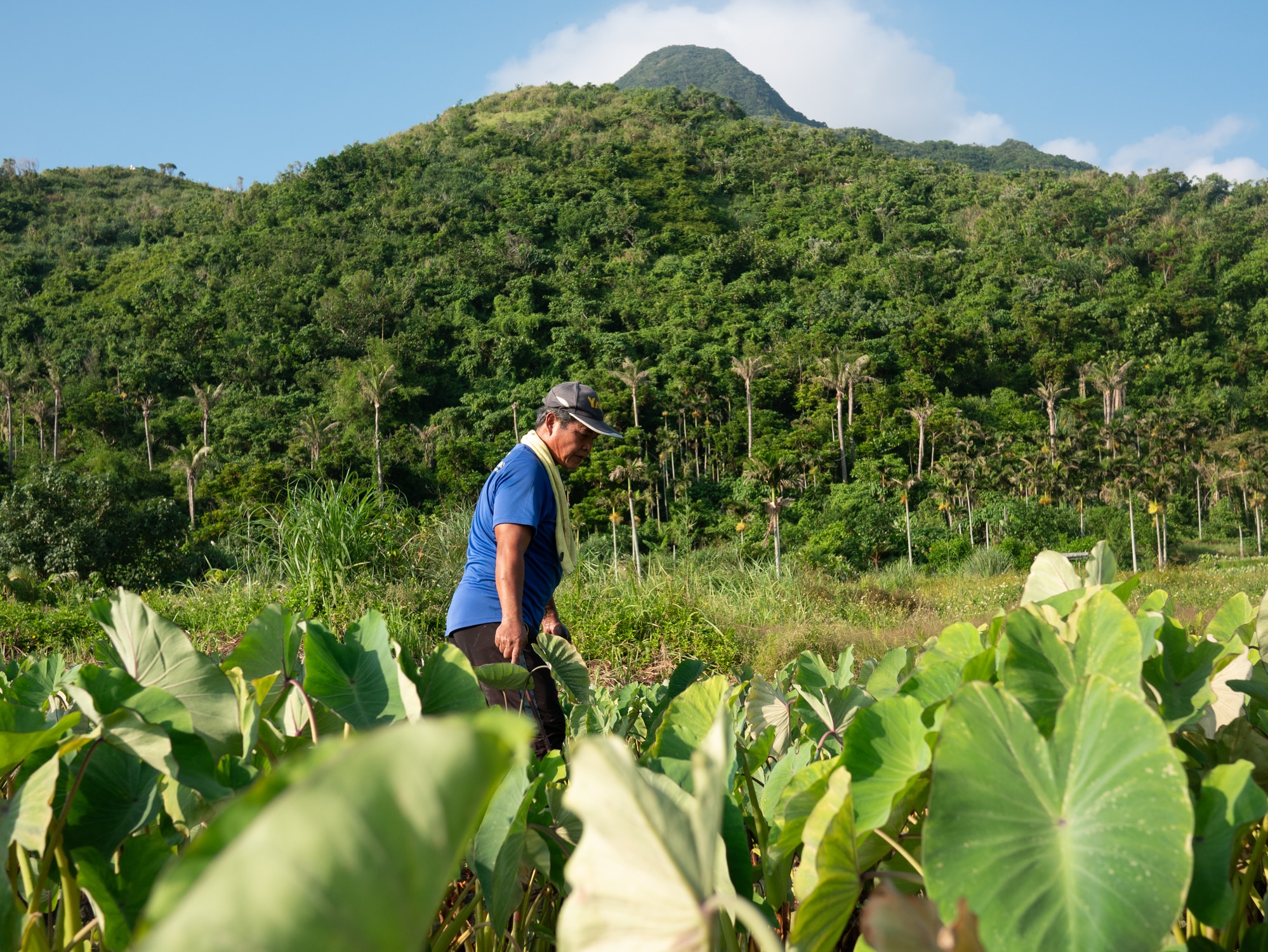
Syamen Womzas wants to see the nuclear waste removed from Lanyu.
By:https://www.abc.net.au/news/2024-10-25/taiwan-shutting-nuclear-power-questions-if-ready/104488556(责任编辑:admin)
下一篇:Taiwan is only months away from shutting off all nuclear power, but some question whether the tech powerhouse is ready
 Socceroos rescue a point
Socceroos rescue a point  Wallabies thrash Wales 52
Wallabies thrash Wales 52 Jake Paul beats Mike Tyso
Jake Paul beats Mike Tyso Live updates: England vs
Live updates: England vs  US election 2024: Donald
US election 2024: Donald  US election live: Kamala
US election live: Kamala
- ·North Korea's latest weapon agains
- ·Hezbollah says Israel 'cannot impo
- ·Inside the rise of US oligarchs and how
- ·Thailand's worst suspected serial
- ·Tabi shoes are turning heads from Holly
- ·FBI arrests Florida man planning attack
- ·Illegal immigrant gets life sentence fo
- ·Bibles, water, watches and sneakers: Do
- ·North Korea's latest weapon against
- ·Hezbollah says Israel 'cannot impose
- ·Inside the rise of US oligarchs and how i
- ·Thailand's worst suspected serial ki
- ·Tabi shoes are turning heads from Hollywo
- ·FBI arrests Florida man planning attack o
- ·Illegal immigrant gets life sentence for
- ·Bibles, water, watches and sneakers: Dona
- ·US to give Kyiv anti-personnel landmines
- ·An arrest warrant for Benjamin Netanyahu
- ·One of Vietnam's high-profile politi
- ·Shanghai Walmart Attack: A Man Randomly S
- ·South Korean police officers jailed over
- ·Cambodia publicly shames maid deported af
- ·North Korea to use all forces including n
- ·Philippines condemns China attack of Viet
- ·US adds 2 more Chinese companies to Uyghu
- ·North Korean defector steals South Korean
- ·Malaysia deports Cambodian worker for cal
- ·Rebels battle for Myanmar junta’s weste

